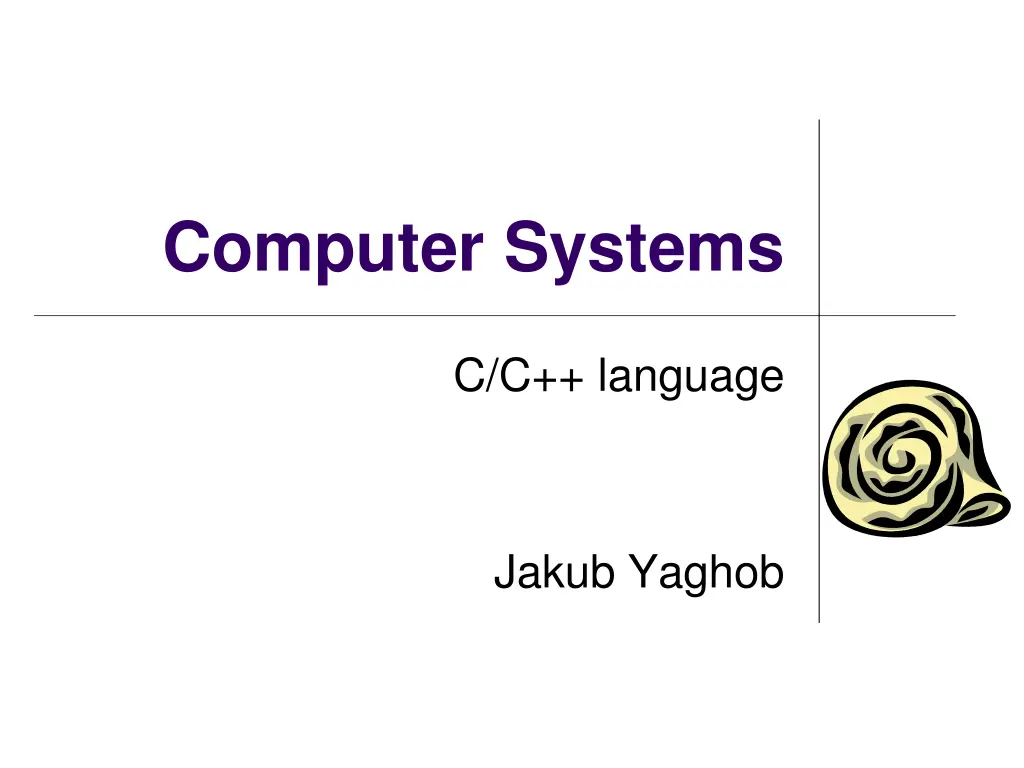
C/C++ Language Overview
"Explore the history, features, examples, constants, basic types, statements, and more of the C/C++ programming language - from its origins to modern developments."
Download Presentation

Please find below an Image/Link to download the presentation.
The content on the website is provided AS IS for your information and personal use only. It may not be sold, licensed, or shared on other websites without obtaining consent from the author. If you encounter any issues during the download, it is possible that the publisher has removed the file from their server.
You are allowed to download the files provided on this website for personal or commercial use, subject to the condition that they are used lawfully. All files are the property of their respective owners.
The content on the website is provided AS IS for your information and personal use only. It may not be sold, licensed, or shared on other websites without obtaining consent from the author.
E N D
Presentation Transcript
Computer Systems C/C++ language Jakub Yaghob
Features Procedural programming language Structured, imperative programming Recursion Static type system C/C++ constructs map efficiently to machine instructions Operating systems HPC Embedded systems Case sensitive, ignore all whitespaces
History inspired superset almost superset significant change B BCPL (Cambridge 1966) C C with classes (Stroustrup 1979) (Bell Labs. 1969) (Bell Labs. 1971) K&R C The C++ programming language (Stroustrup 1985) Objective-C (Cox & Love 1981) (Kernigan & Ritchie 1978) C++98 ANSI C (ANSI X3J11 1989) Java (Sun 1995) Object-Oriented Programing (Cox 1986) (ISO/IEC 14882 1998) C# (Microsoft 2002) C99 C++03 C++20 (2020) Objective-C 2.0 (Apple 2006) (ISO/IEC 9899 1999) (ISO/IEC 14882 2003) C++/CLI (Microsoft 2005) C18 (2018) C++17 (2017) C++TR1 (ISO/IEC 19768 2007) Objective-C++ (Apple 2010) C++14 (2014) C++11 C11 (ISO/IEC 14882 2011) (ISO/IEC 9899 2011)
Example /* this is my best program */ #include <stdio.h> int x; // global variable int f(int p) { int q = p+x; return q; } // function // local variable
Constants Integer numbers Decimal number 123, -18 Hexadecimal number 0x7a Floating point number -1.234e-5 String "foo bar" Char 'a' Escape sequence \n LF \r CR \t TAB \\ \ \' \" \xab char 0xab
Basic types Integer types Base char, int Modifiers short, long signed, unsigned Auxiliary size_t Floating point types float, double Other types void, bool Implicit conversion Conversion rank
Statements Compound statement (block) { } Expression statement expr ; If statement if(expr) stmt if(expr) stmt else stmt Return from a function return expr;
Statements switch switch(expr){ case 0: // something break; case 1: // something else break; case 2: case 3: // common code for 2 and 3 break; default: // do something else otherwise break; }
Statements loops While Do-while For Jumps while(expr) stmt do stmt while(expr); for(expri ; exprt ; exprs) stmt break; continue;
Expression Arithmetic +, -, *, /, % No// ++, -- Comparison <, <=, >, >=, ==, != Bitwise ~, &, |, ^, <<, >> Logical &&, ||, ! Pointers &, * Assignment =, +=, -=, *=, /=, %=, &=, |=, ^= Variable/type size sizeof Ternary expr test ? e1 : e2
Variables A named value stored in a memory Must be declared before initialization and using Variable scope Storage class int i, j; int c = 42; static int s = 0;
Array Collection of elements each identified by at least one index Contiguous area of memory Constant size Correct alignment Row-major order Zero based index int u[4]; int p[] = { 1, 2, 3 }; int a[2][3] = { { 1, 2, 3 }, { 4, 5, 6 } }; 0, 0 0, 1 0, 2 1, 0 1, 1 1, 2 1 2 3 4 5 6
Structure Collection of fields (members) Inner alignment (padding) Outer alignment (padding) struct point2d { int x, y; } struct data { char c; double d; int i; }; c 0 d 8 i 12
Remnants Constants #define C 13 constexpr int C = 13; Enumerated type enum e { RED, BLUE, GREEN }; Automatic type Type inferred from an initialization expression auto a = 3; Importing a module #include <system.h>
Starting point Always function main Return value is an exit code Without return 0 exit code assumed Basic version int main() { } Advanced version int main(int argc, char **argv) { }
Pointer Each variable somewhere in memory Address A variable holding an address = pointer int v = 8; int *pv = &v; *pv = 4; 1234 v 8 6666 pv 1234
Functions, parameter passing C Parameters in C always passed by value Output parameters use pointer void pvec(point2d in, point2d *out) { out->x = in.y; out->y = in.x; }
Reference Fixed pointer Address not reassignable int v = 8; int &rv = v; rv = 4; 1234 v 8 6666 rv 1234
Functions, parameter passing C++ Parameters in C++ passed by value or by reference Output parameters by reference void pvec(point2d in, point2d &out) { out.x = in.y; out.y = in.x; }
C++ classes encapsulation Simple uses of C++ classes Encapsulation Data holding a state Functions manipulating with data/state class C { public: C() : sum(0) { } void fnc(int a) { sum += a; } int get_sum() const { return sum; } private: int sum; };
